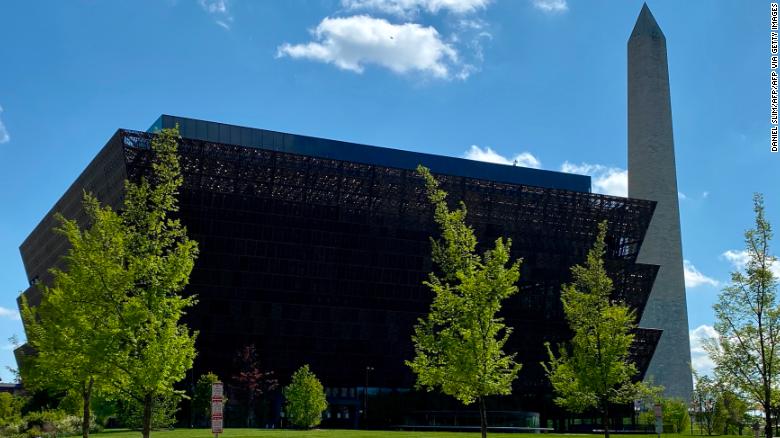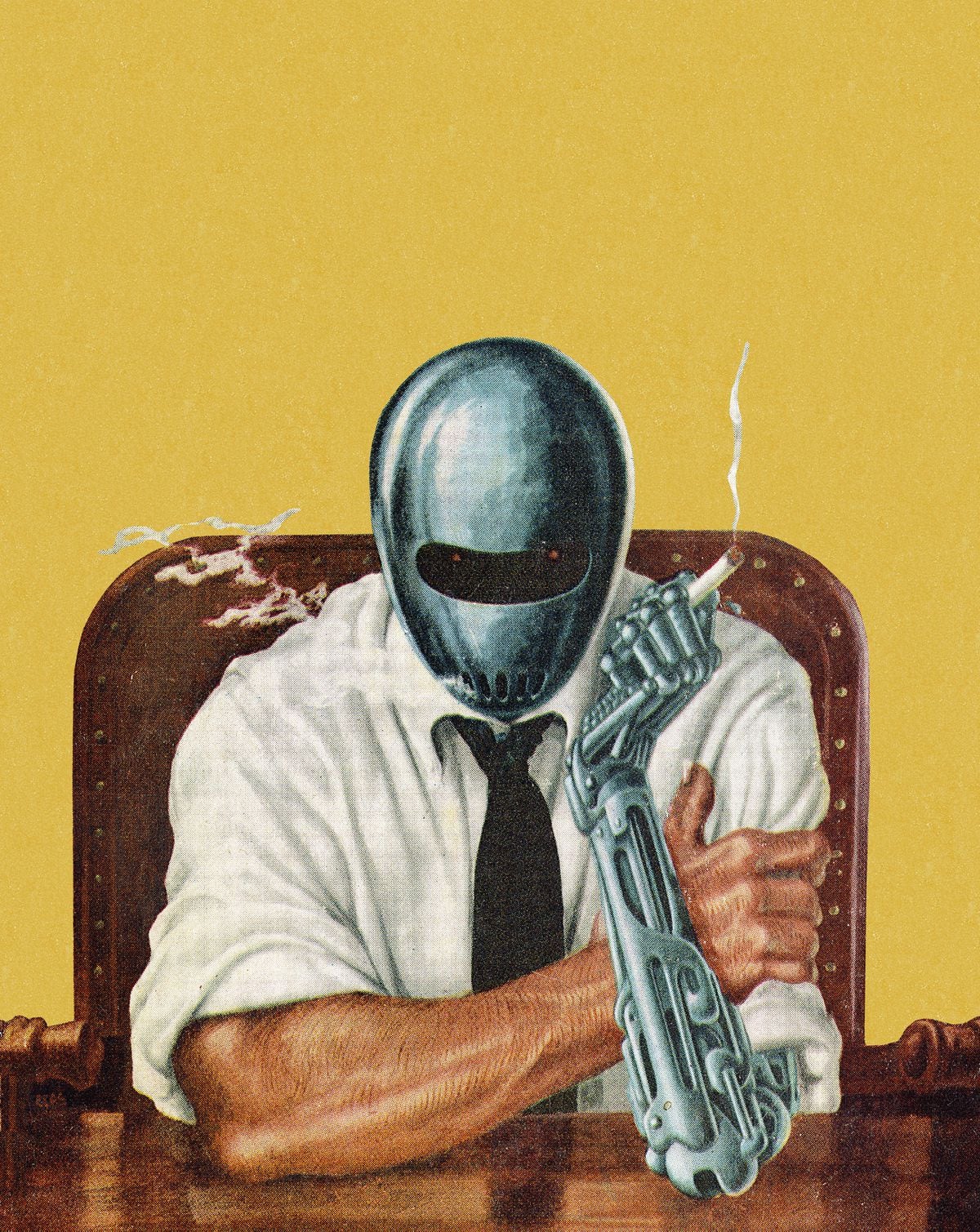Editor's Note: Richard Thompson Ford is the George E. Osborne Professor of Law at Stanford Law School. His books include "The Race Card: How Bluffing About Bias Makes Race Relations Worse," and the upcoming "Dress Codes: How The Laws of Fashion Made History." The opinions expressed in the comment are yours; See more opinion at cnne.com/opinion
(CNN) - For a brief time, the magnificent National Museum of Black History and Culture in Washington, in a surprising misstep, published a document titled "Aspects and Assumptions of Whiteness and White Culture," which was intended to educate the viewer on how "White people and their traditions, attitudes, and ways of life have been normalized… and are now considered standard practice in America."
According to the graphic, which The Washington Post reported as coming from a 1978 book, elements of white culture include "tough individualism," the nuclear family, the scientific method, "rationalism," the Protestant work ethic, avoid conflicts and the "written tradition."
I am the son of a black Presbyterian minister and college professor and a black college librarian, and these practices and standards are very familiar to me.
So when I think of "white culture," I remember what Mahatma Gandhi supposedly said when asked what he thought of Western civilization: "I think it would be a good idea." But the idea that the culture in question is white is actually a very bad idea.
In fact, the very idea that cultural practices belong to racial groups misinterprets both race and culture.
Fortunately, the museum removed the document in response to widespread criticism. But it reflects a fairly common misconception that races are defined by distinctive cultural norms and practices.
Problems with this idea are evident in the document's opening statement, which insists that "we have all internalized some aspects of white culture, including people of color."
The obvious conclusion to be drawn from this is that "white culture" is really the culture of people of color as well, but instead the picture suggests that white people, who "still have most of the institutional power in the United States. United, ”he imposed his culture on everyone else.
This might explain why many people of color exhibit and in some cases even exemplify "white culture," but it does not explain why many white people do not: for example, the current white president of the United States exhibits a marked lack of respect for science and the sanctity of the family nucleus, not to mention the avoidance of conflicts.
And the bigger problem is that the notion of "white culture" - individualism, work ethic, written tradition, rationalism, conflict avoidance, etc. - was passively imposed or 'internalized' by people of color, ignores the contributions and achievements of generations of industrious and self-reliant black scientists, philosophers and writers, not to mention the black Protestants who made the ethics of nonviolence a guiding feature of their lifes.
The most obvious example of the latter is, of course, the Reverend Martin Luther King, Jr., who made a profound and lasting contribution to the development of many of the values that the chart attributes exclusively to the white race.
It is an insult to suggest that King "internalized" his faith or ethics of nonviolence because a white power structure imposed it on him.
On the contrary, he developed them from his own intelligence, experience and studies; Furthermore, his ideas, forged in the struggle for black liberation, are now an integral part of both the Protestant faith and popular morality in the United States and elsewhere.
"White culture" indeed reflects the ideas, experiences, sensitivities, and perspectives of people of all races, especially blacks whose contributions to American culture are as broad and profound as those of the stereotypical Mayflower Pilgrims.
A defining characteristic of white supremacy has been taking credit for work and the achievements of other races, whether the work involves physical labor drawn without pay or intellectual and cultural work copied without attribution.
The idea of "white culture" drives this white supremacist project, crediting whites for work ethics, when no group of people in human history has worked harder and for less reward than blacks; for the Christian faith, when black worshipers and religious leaders have fostered and revitalized Christianity and set the tone that whites later adopted, for better and for worse; for "delayed gratification" when generations of blacks delayed their own gratification even until the day of their death in the hope that their children could have a better life in a more just society.
Similarly, when it comes to the "written tradition," many renowned white authors incorporated aspects of the literary traditions developed by black writers such as Zora Neale Hurston, Richard Wright, Ralph Ellison, and Gwendolyn Brooks.
This is not a case of cultural appropriation, but of a cultural conversation between people of all races, giving rise to new forms of expression that no race can exclusively claim but that everyone can be proud of.
Yes, as the great black philosopher, activist, and sociologist WEB Du Bois pointed out that early in the American century, black people created "the only American music," and they also did more than their part to shape a shared American culture.
Of course, the description of white culture in the table is intended to be somewhat derogatory, due in large part to countercultural critiques of soulless American capitalism and strained bourgeois respectability.
If "white culture" prevailed on people of color, we got rid of all that: the flip side of the denial of black achievement inherent in the idea of "white culture" is the denial of black responsibility. But ultimately, this is almost as insulting and dehumanizing.
Because there is no white culture, only an American culture, people of color deserve their share of the blame and credit.
We bear part of the responsibility for an ethic of "tough individualism" that, at worst, has fostered alienation and selfishness; If the veneration of the nuclear family has stigmatized other forms of physical care and intimacy, we are also partly to blame for that.
That is what it means to be a vital part of a culture and a civilization, not to have "internalized" it as passive victims, but to have been part of it in all its glory and horror.
The idea of white culture - indeed, the idea that any set of cultural practices belongs to any race - ignores or repudiates the defining development of the modern world: the cosmopolitan blending of older cultures, face to face, made possible by the expansion of communication and migration.
Much of this involved violence and exploitation, so it is perhaps understandable that some want to recapture the practices and customs of some immaculate past.
But African Americans are not displaced Africans who could return to an ancestral homeland; we, especially among the abused racial groups in the United States, are the children of modernity, a new people born in the violent encounter with greedy and ambitious Europeans who created a new identity and culture out of that trauma.
For better or for worse, America is our only home: we have no "pure" traditions to return to. Instead, what we have are our profound contributions to what remains, for all its flaws and hypocrisies, one of the most dynamic, inventive and promising civilizations to emerge from the chaos of human history.
The notion of "white culture", whatever the motivations of those promoting such ideas, seeks to replace that priceless heritage with a combination of pity and condescension. Unlike Western civilization, a worthy but incomplete aspiration, white culture is simply a bad idea.














